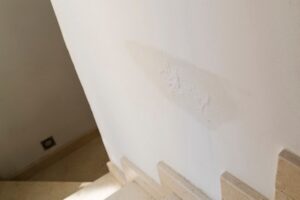Is Your Home Trying to Tell You Something? Warning Signs You Shouldn’t Ignore
Like everything else in the world, houses wear down as they age. It can quickly weaken, making it difficult and dangerous to live in. This is especially true if there is no regular maintenance. However, your home often has a way of communicating with you, subtly hinting that it needs attention. And it’s crucial to pay attention to these signs and address them promptly before they escalate into significant issues. So, let’s delve into the signals your home is trying to tell you!
1. Sagging or Uneven Floors
If you notice sagging floors in your home, particularly if you have hardwood flooring, make sure you don’t ignore them.
Uneven or sagging floors tend to slope and bend, creating an uncomfortable and awkward walking experience. This can be unsightly, but it can also pose a danger to individuals, especially with physical disabilities, people over 70, or very young ones.
This issue could be due to several factors, such as poor foundation, water damage, or deteriorating support beams. That’s why, It’s best to consult with a professional contractor or structural engineer who can assess the situation and recommend the appropriate repairs.
2. Water Stains
Water stains on your walls or ceilings may seem like visual issues at first, but according to plumbing experts, they are often signs of a deeper problem. They indicate a leak in your roof, a burst pipe, or even faulty plumbing.
Therefore, whenever you notice water stains, don’t just cover them up with paint. As ignoring them can lead to structural issues, mold growth, and even compromise the integrity of your home.
So, you must call a professional plumber to identify the source of the leak and address them immediately.

3. Peeling Off Paint
Paint is a protective layer for your walls, shielding them from moisture, dirt, and other environmental factors.
But have you noticed the paint on your walls starting to peel? If yes, your home is trying to tell you that there are moisture or structural issues.
Start by identifying the root cause of the paint peel-off. Once you’ve determined the cause, you can take steps to address the issue. This may involve repairing any moisture problems or applying a fresh coat of high-quality paint.
4. Electrical Problems
Frequently tripping circuit breakers, flickering lights, or outlets that don’t work properly can be indications of electrical issues. Faulty wiring or overloaded circuits can pose fire hazards, so it’s crucial to address these problems promptly.
5. Overheating Electrical Appliances
You know that feeling when you touch an electrical appliance, and it’s unusually hot? Well, that’s a sign that something might be amiss.
It could indicate problems such as faulty wiring or damaged components. These issues can lead to electrical malfunctions, electrical shocks, or even fires if left unaddressed.
So, what should you do if you see an appliance overheating? First, turn it off and unplug immediately to prevent further damage. Then inspect it for any visible signs of damage like frayed cords or burnt marks.
However, if you’re not confident, take the help of an electrician who can check for any clogged vents or replace worn-out parts.
6. Pest Infestations
Unwanted critters in your home can be more than just a nuisance. They can cause damage to the structure and pose health risks. If you notice signs of pests, such as droppings or gnawed furniture, it’s important to take action to eliminate the infestation.
7. Cracks in Walls or Foundation
Cracks in walls, especially if they are widening or appearing suddenly, might be a sign of foundation problems. These issues should be evaluated by a professional to prevent further structural damage.

8. Slow Drainage
Slow drainage in sinks, showers, or toilets is often a sign of clogged pipes. Ignoring this issue can lead to more severe plumbing problems, such as backups or pipe bursts.
9. Gaps or Spaces around Doors and Windows
Noticeable gaps or spaces around doors and windows can result in energy loss and drafts. Proper insulation and weatherproofing measures should be taken to improve energy efficiency.
10. High Energy Bills
If your energy bills have been consistently increasing without any obvious explanation, your home may be trying to tell you that it lacks proper insulation or has inefficient appliances. Taking steps to improve energy efficiency can save you money in the long run.
11. Unusual Odors
Is there a persistent musty smell or an odor you can’t identify? Unusual odors can be indicative of mold, mildew, or other underlying issues. It’s crucial to investigate the source and take appropriate action.
12. Unexplained Sounds
Strange noises, such as banging, creaking, or scratching, can be unsettling. While some sounds might be attributed to normal house settling, others may indicate underlying issues, such as plumbing problems or pests.
13. Mold Growth
Mold not only affects indoor air quality but can also cause health issues. If you notice black spots or a musty smell, it’s essential to address the mold problem promptly to prevent it from spreading and affecting your well-being.
Frequently Asked Questions (FAQs)
Q: How do I know if I have mold in my home?
A: Look out for signs like musty odors, black spots on walls or ceilings, or an increase in allergy symptoms. If you suspect mold, it’s recommended to consult a professional for proper testing and remediation.
Q: What should I do if I detect a water leak in my home?
A: Act quickly to locate and repair the source of the leak. Depending on the severity, you may need to shut off the water supply and consult a professional plumber to fix the issue.
Q: Can pests cause structural damage to my home?
A: Yes, certain pests like termites or carpenter ants can cause significant structural damage by feeding on wood. If you suspect a pest infestation, it’s important to contact an exterminator for appropriate treatment.
Q: How can I improve indoor air quality in my home?
A: Regularly ventilate your home by opening windows, use air purifiers, keep your HVAC system well-maintained, and avoid using products with strong chemicals or VOCs.
Q: Are foundation issues common in homes?
A: Foundation issues can occur in homes, especially in areas with expansive soil or poor construction practices. Regular inspections and timely repairs can help prevent serious damage.
Q: Should I attempt to fix electrical issues myself?
A: It is recommended to hire a licensed electrician for any electrical repairs or issues. Working with electricity can be dangerous and should be left to professionals.
Conclusion
Your home is more than just a structure—it communicates with you through various signs. By paying attention to these signs, you can address underlying problems before they worsen. From unusual odors and water stains to electrical issues and pests, each sign carries valuable information. Remember, ignoring these signs can lead to more extensive damage and costly repairs down the line. So, listen to what your home is trying to tell you and take appropriate action to ensure a safe, healthy, and comfortable living environment.
